Samourai Wallet co-founders' arrests and charges with money laundering raise existential questions for crypto mixing tools and Bitcoin privacy tech.
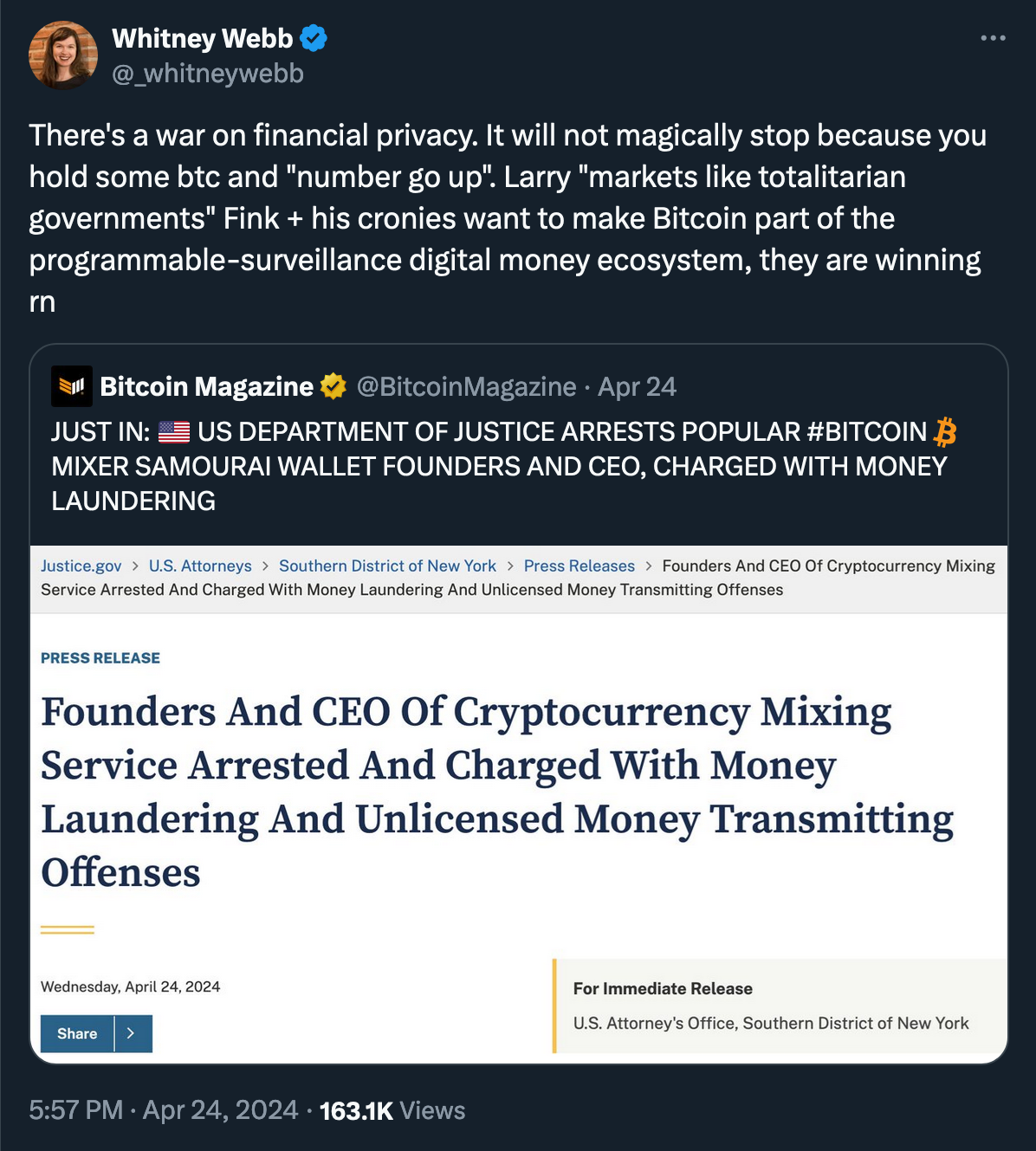
Samourai Wallet offered a 'mixing' service that allows users to batch transactions to enhance the privacy of their on-chain activities. Since Bitcoin's blockchain is transparent and public, with all transactions visible, seeking additional privacy is not unreasonable for users nor indicative of criminal activity. When sending BTC, you may not want the recipient to trace your coins back on the blockchain and discover a substantial balance, for example.
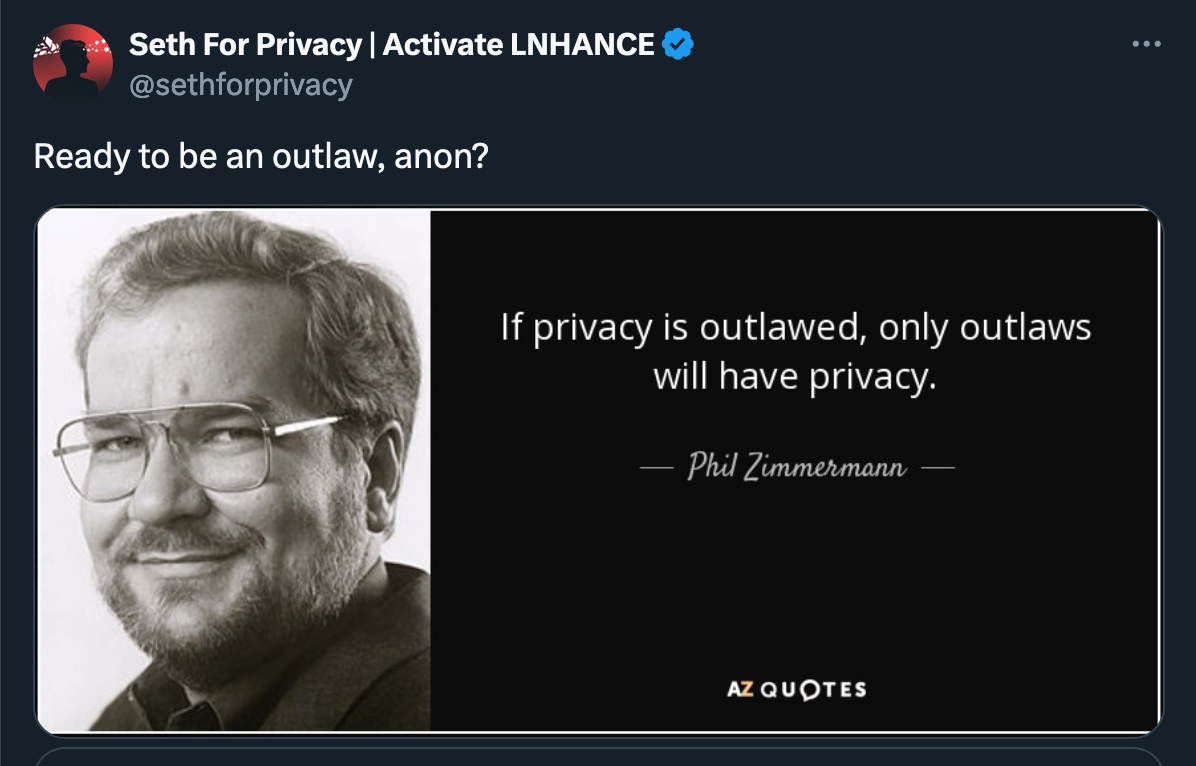
The U.S. government, however, is intensifying its crackdown on Bitcoin privacy tools. With two more open-source developers arrested, it cleared any doubts that any involvement in or profiting from privacy tools beyond authoring code is off-limits.

Bitcoin Fog, Tornado Cash, now Samourai Wallet. Call it an assault on privacy or an attack on free speech, but it really looks like any money that flows into an application designed to mix funds and shield user addresses is treated as laundered funds, no matter the purpose or destination.
Read also: What to do if you’ve used Samourai Wallet
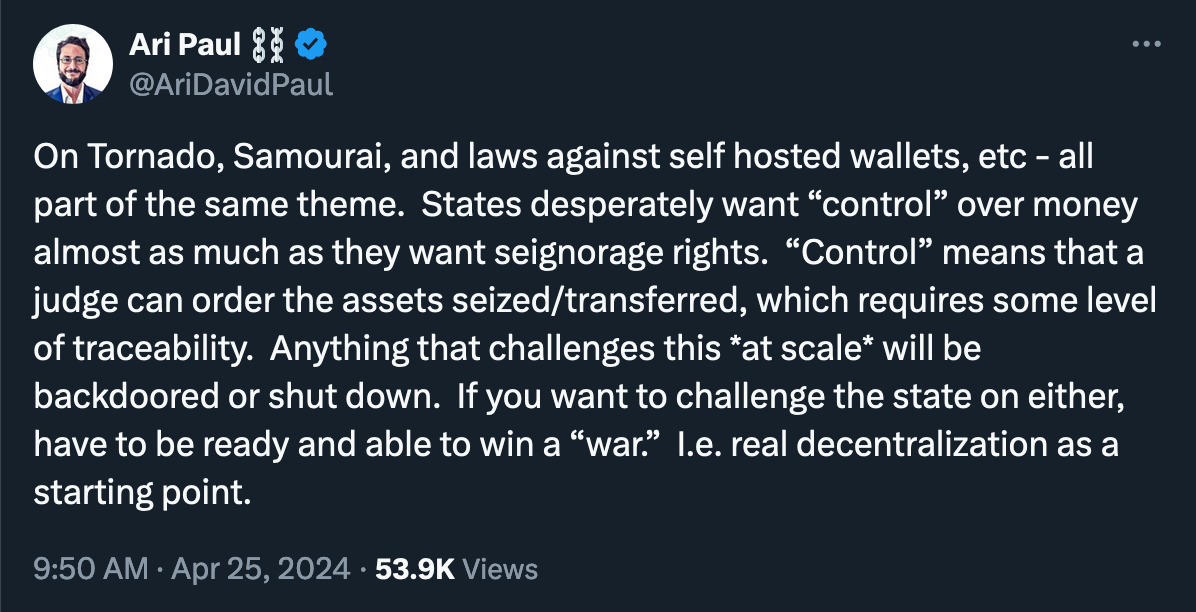
(Thread)
Authorities claim Samourai Wallet processed over $2 billion in unlawful transactions, including at least $100 million connected to dark web marketplaces. Similar arguments were made regarding Tornado Cashwhen sanctioned by the U.S. Treasury, which essentially counted every dollar transacted through it as criminal.
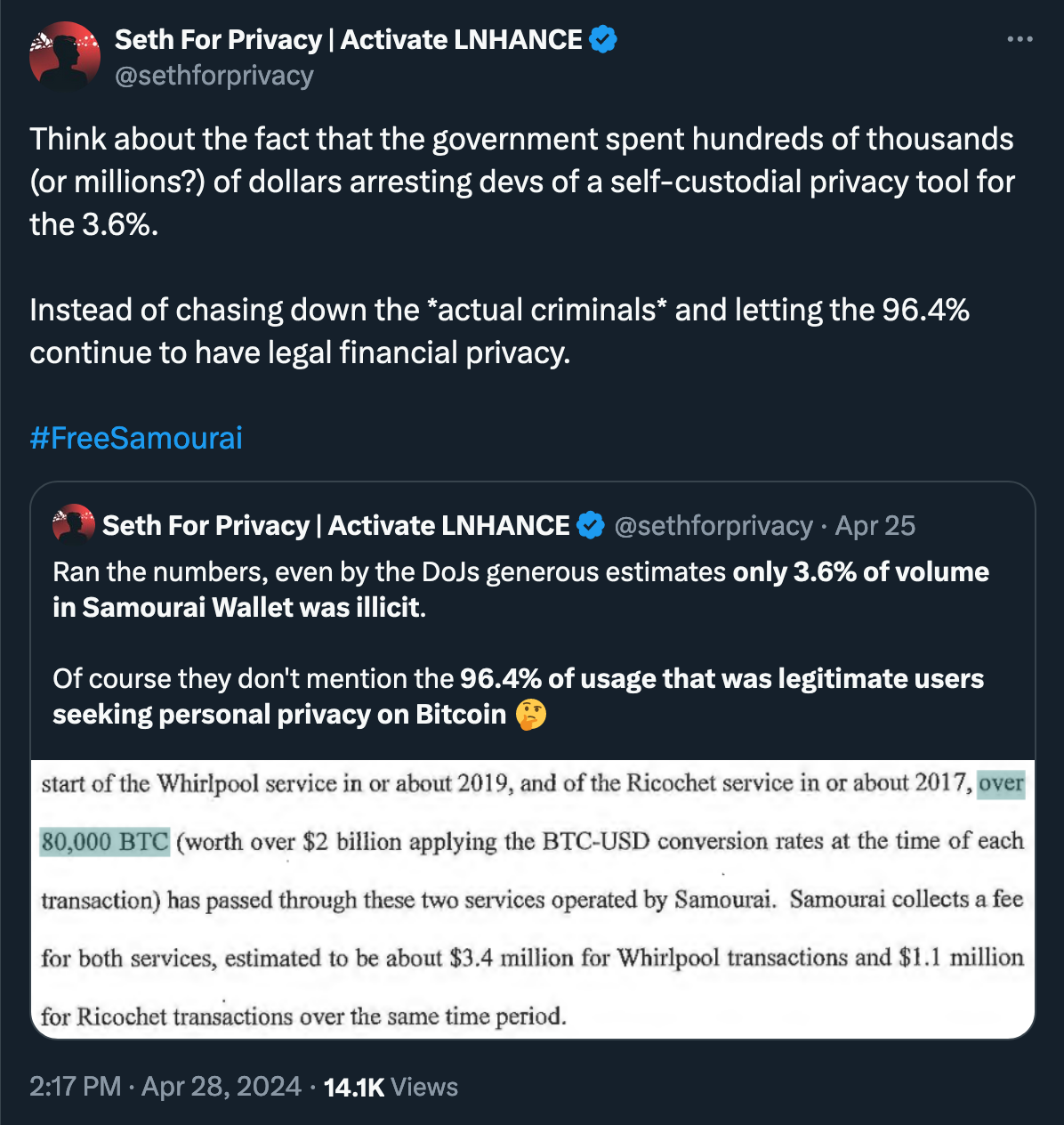
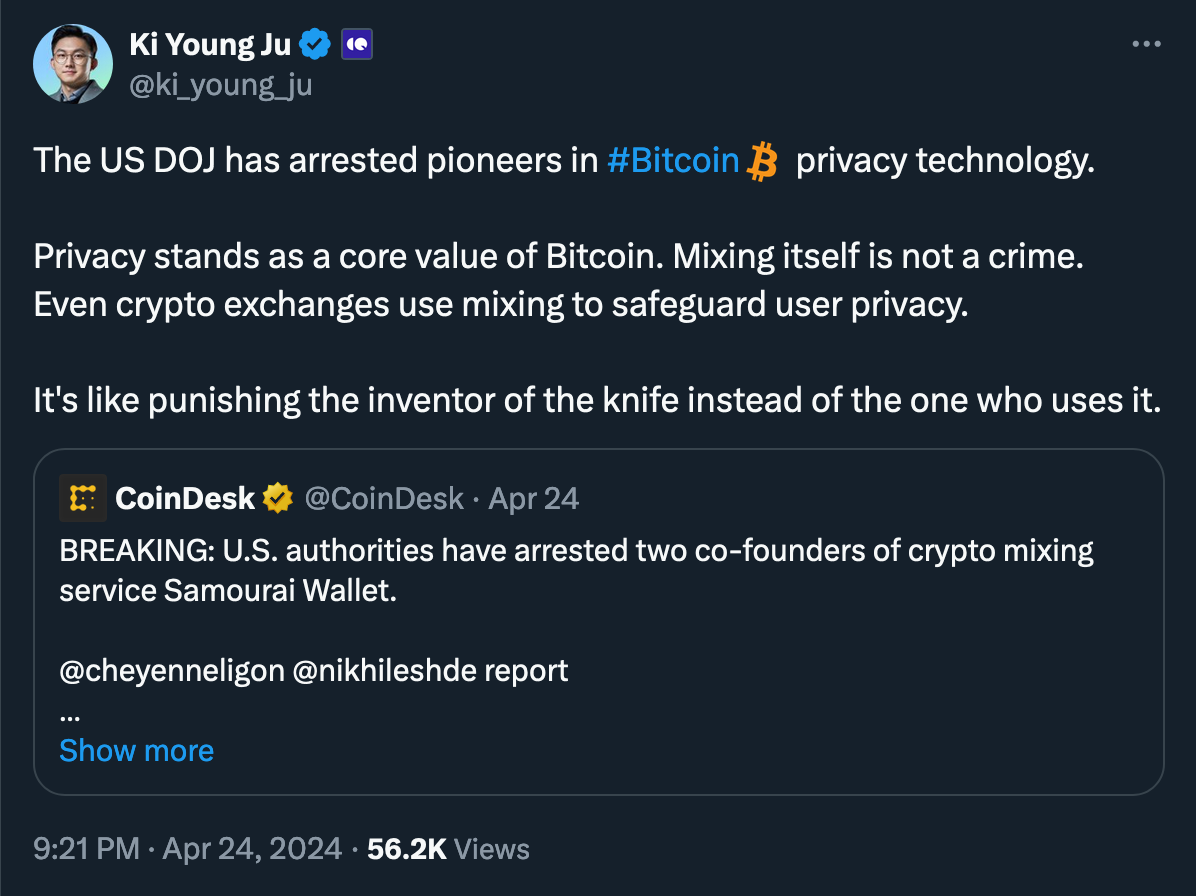
On the other hand, Samourai allegedly earned 'millions of dollars in fees' from its wallet and mixer services, according to the indictment.
“Ultimately if you’re knowingly facilitating illicit finance and profiting from it, which is alleged in the complaint, the outlook is bleak... Nevertheless, it’s disturbing the extent to which the Biden Administration is attempting to criminalize privacy.” (Nic Carter for Coindesk)
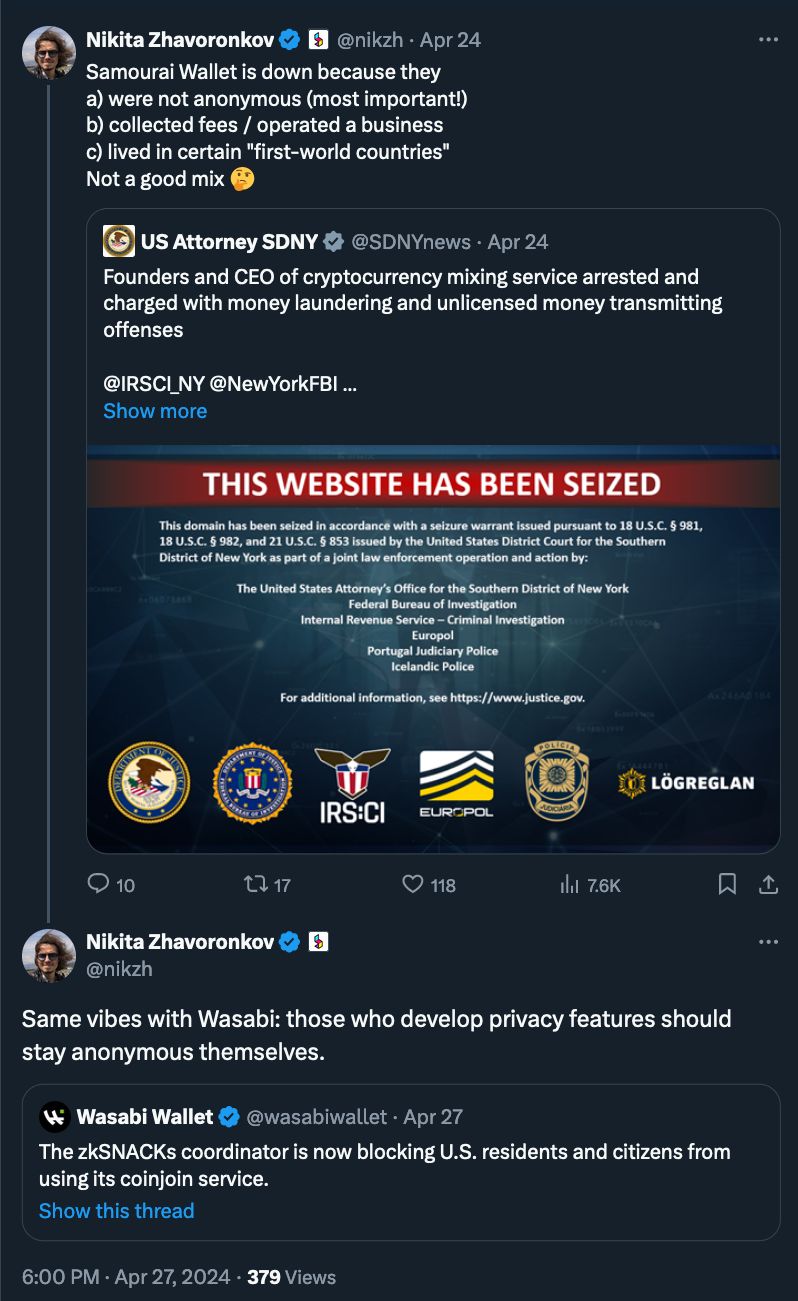
“From the cases against Tornado Cash to the IRS 'broker rule' to the arrest of Samourai Wallet's founders, it's clear that the U.S. government is moving aggressively against privacy tools in crypto.” (Alex Thorn for Coindesk)
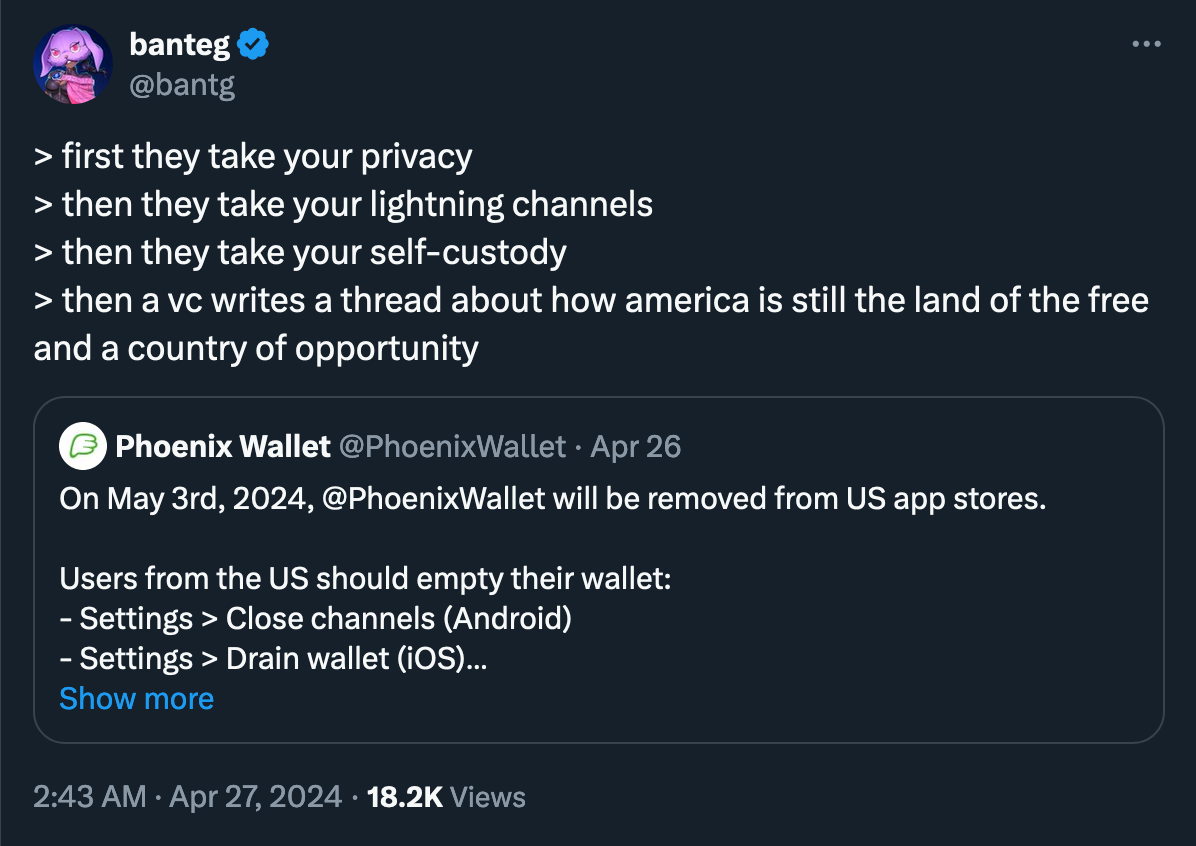
It’s worth noting that while arrested co-founders had been actively overseeing the protocol since its launch over a decade ago, Samourai Wallet is non-custodial and open-source: the code was 'self-hosted' on the public GitLab repository, so in theory, anyone can build, run, and host that software.
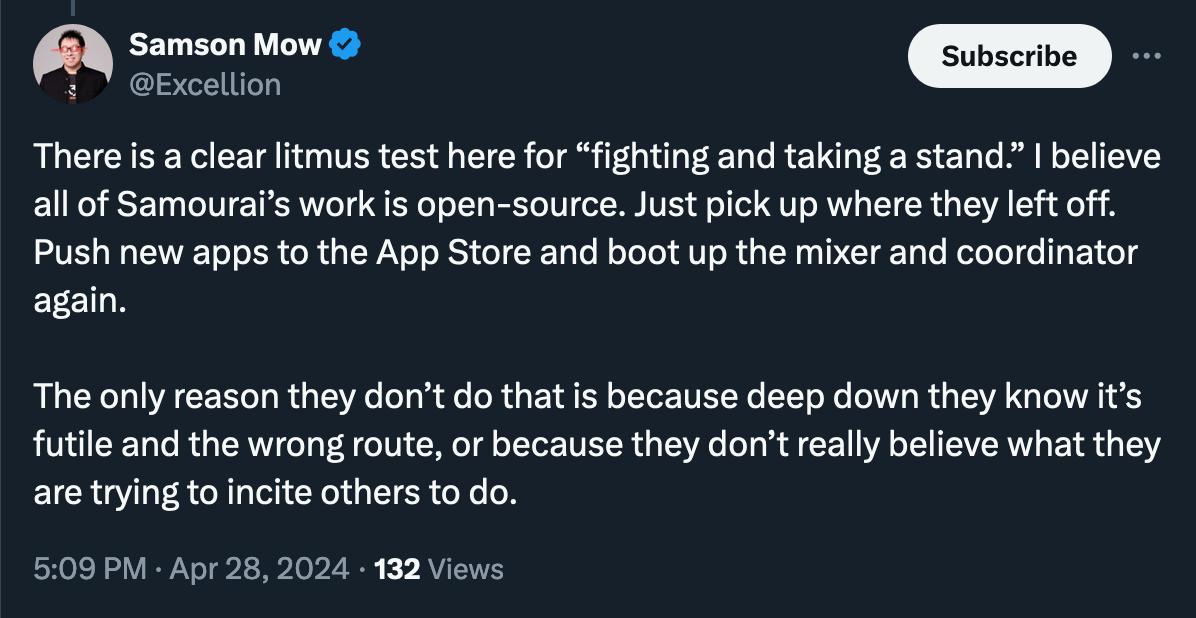
The first movement, however, occurred in the opposite direction, as Wasabi Wallet announced it would block U.S. residents from using its coinjoin service, and Phoenix Wallet reported about removing from U.S. app stores.
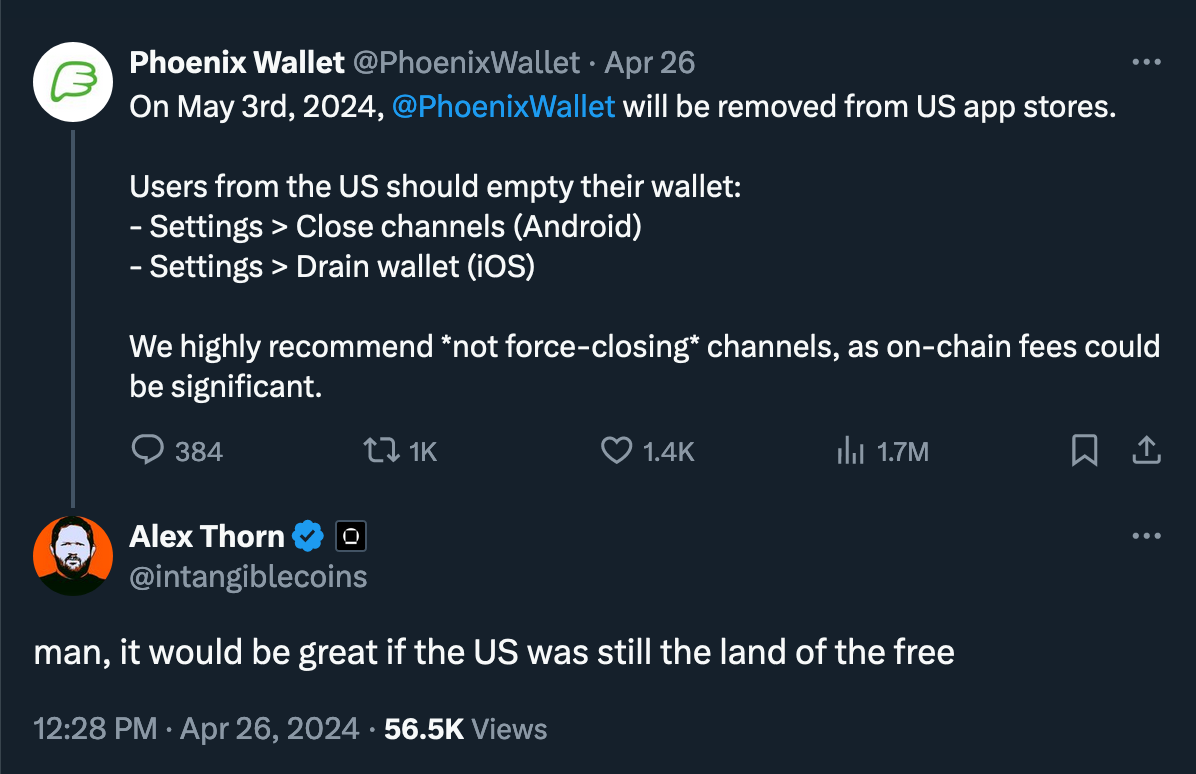
Nonetheless, most experts believe that crypto mixers could theoretically be legal to code but likely not to market or maintain. In the United States, releasing software is generally protected under the First Amendment, as code is considered a form of language, and language is speech. However, it definitely matters whether authors of the crypto mixer code profit from their creations.
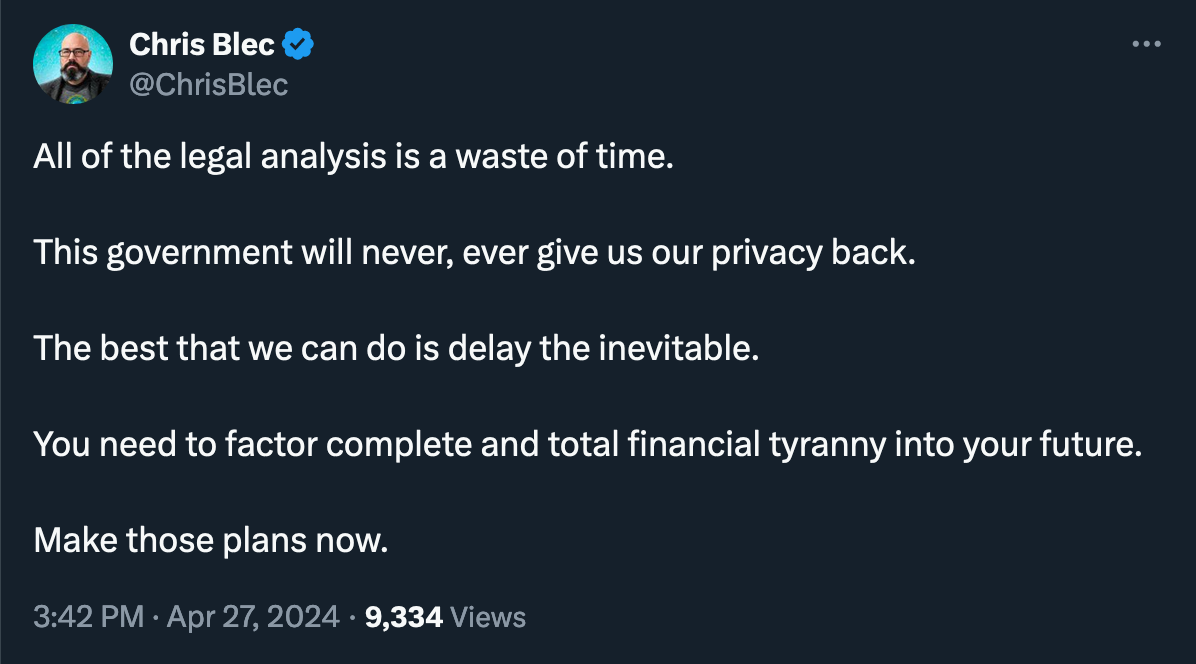
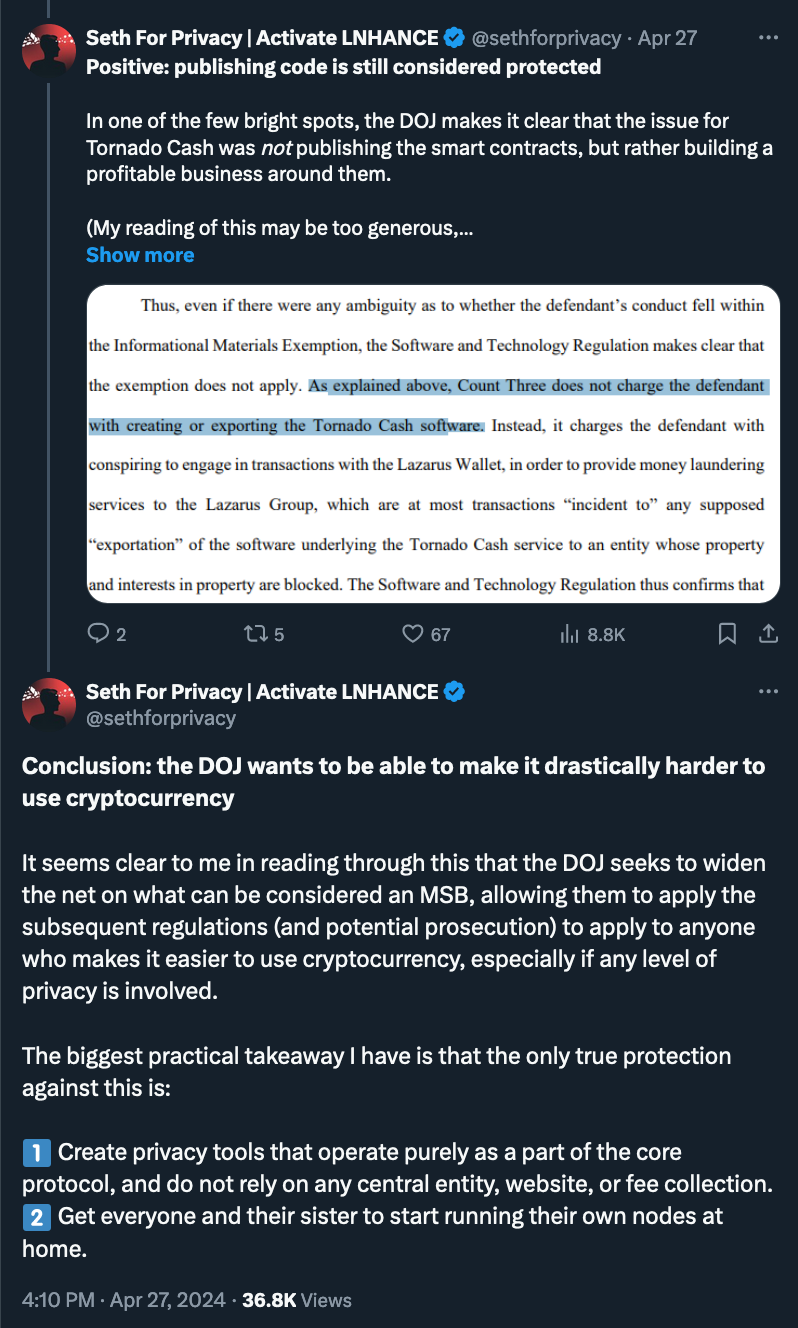
(Thread)

